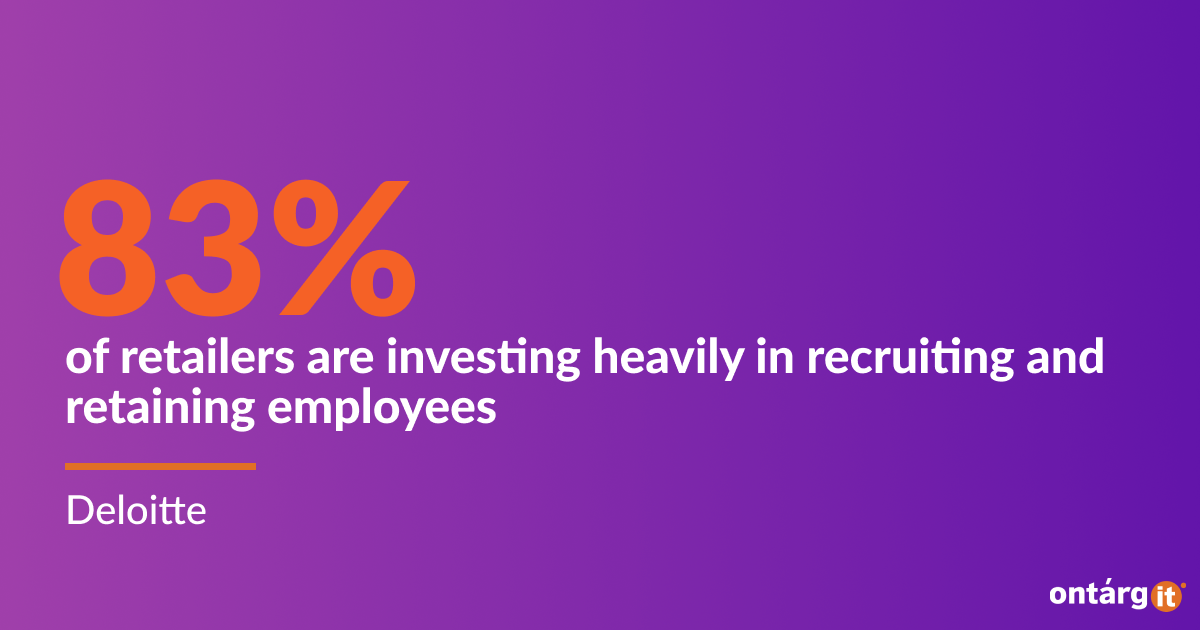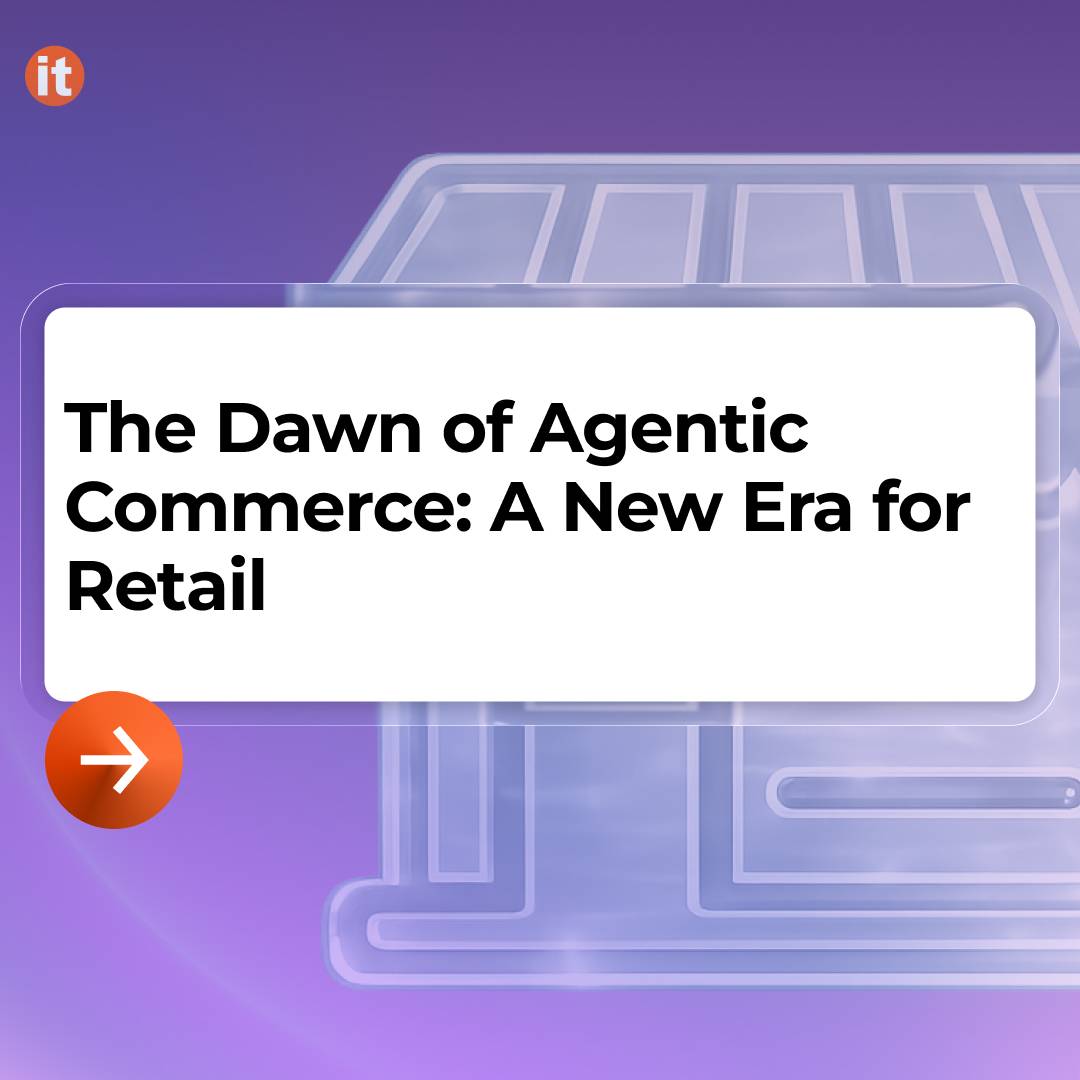The retail industry is in a period of uncertainty and hope. Countries across the globe are trying to return to normal after the crisis. But does expected normal is the same nowadays normal when so many customers have been pushed to adopt mobile technology and remote services like never before?
Before making any sort of investment decisions, let’s take a look at three of the biggest retail industry trends of 2023.
New workforce challenges
It`s a relevantly new challenge. Even a year ago, the labor problems prevailing in the retail industry today would have looked unlikely, given where the economy was headed and how common workforce lay-offs were. During the pandemic, not many people would quit a job voluntarily without having another opportunity at hand.
But many retailers have found the realities of today’s workforce to present challenges.

Salaries might be one of the major reasons for the “great resignation,” but the issues are far more profound. Mostly concerning, new employees` priorities around work culture and inclusion.
Given that information, retailers should invest in a workforce focusing on automation and technology instead of relying only on physical labor. It is just a matter of time before staff-free stores will be a common thing.
The current retail workforce structures clash with evolving employment expectations. Retailers must look beyond pay for ways to enhance the day-to-day workforce experience. They must find ways to infuse flexibility, culture, and purpose to employ and retain employees.
Moreover, new priorities challenge retailers to address how they are representing themselves in the marketplace – from a diversity of suppliers to career progression for historically marginalized groups. It will make vendors, employees, and customers feel included and connected with the retail brand.
Overcoming challenges related to manufacturing, inventory management, and movement of goods
Supply chain raised challenges in the manufacturing and movement of goods across the globe. Proper supply chain resiliency requires dynamic change across the board.
As retailers are getting ready to take action, they have to understand that just as well as employee expectations and priorities, similarly consumer shopping habits have changed too. It is challenging to predict nowadays where and when customers will make their purchases. Consumers are turning into merchants too, they purchase from a diverse range of retail channels and resell used goods via digital platforms.
Companies need additional authentic information and technology upgrades to create agile and efficient systems that can adeptly handle brand-new consumer scenarios. For example Dynamics 365 Customer Insights will help you measure your customers satisfaction level and react instantly to positive and negative changes.
What should retailers do to overcome supply chain challenges?
Automation is key: Fulfillment, inventory, and warehouse management are anticipated to attract major investments in 2023. However, most executives still aren`t interested in investing in robotics and automated material handling systems.
Transparency and dissemination of information: Secrets stay in past – not sharing information is going to turn out to be detrimental to one and all. Transparency is the new way of leaving – openly and fully sharing information will help retail partners’ upstream plans.
The convergence of physical and digital experiences will gather momentum
In 2023, the fusion of physical and digital experiences is bound to pick up speed. Retailers should plan to meet the current eCommerce needs for the future as well. Consumers’ buying habits are now rapidly changing, making them rely on technology and digital platforms increasingly.
For the next five years, retail leaders are optimistic about digitization prospects:
What should retailers do to make the most of the marriage of physical and digital experiences?
Leverage marketing: Most retailers are planning to make moderate to major investments in digital marketing. It means that they are trying to gain market share by increasing customer outreach and turning in-store shoppers into online shoppers. Logically, shoppers are more profitable when you make them spend on both channels. Investing in digital marketing to increase website traffic and generate sales is a promising short-term strategy to get the ball rolling.
Considering growing digital marketing prospects, retailers should pay attention to the metaverse, using it for virtual product launches and events that will leave a long-lasting impact in the marketplace.
Omnichannel experiences require minimal infrastructure: retailers should try and assemble a mix of traditional shopping patterns and omnichannel fulfillment activities.
Minimal infrastructure stimulates retailers to invest in solutions focusing on operational efficiency and omnichannel experience.
In addition, a zero-infrastructure approach enables granular control over costs, security, data management, service quality, and applications. In a nutshell, retailers should concentrate on accelerating their ability to harness the power of distributed infrastructure and upgrading store technology.
Undoubtedly, retailers are facing challenges that will most likely last far beyond the crisis. However, unexpected opportunities will help retailers brace up for future disruptions. Retailers must balance traditional business patterns and modern innovative technology to overcome supply chain challenges, manage the workforce effectively, and offer an omnichannel experience to customers.

















